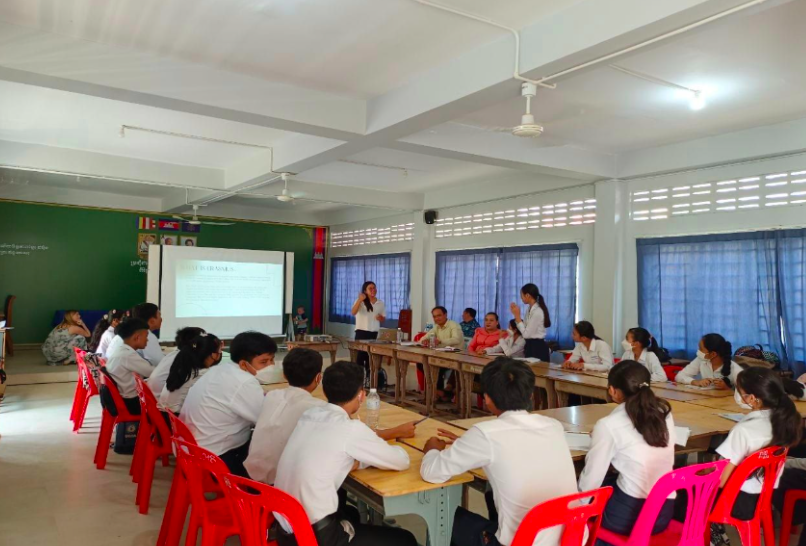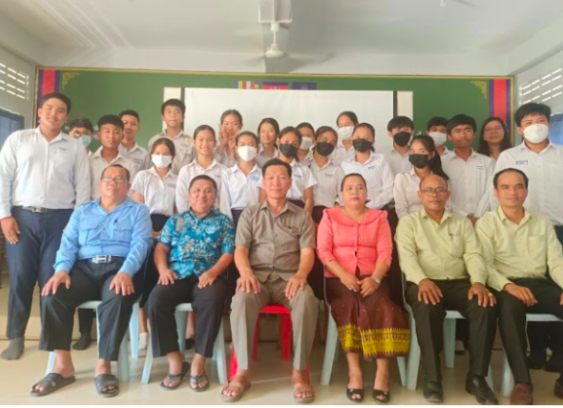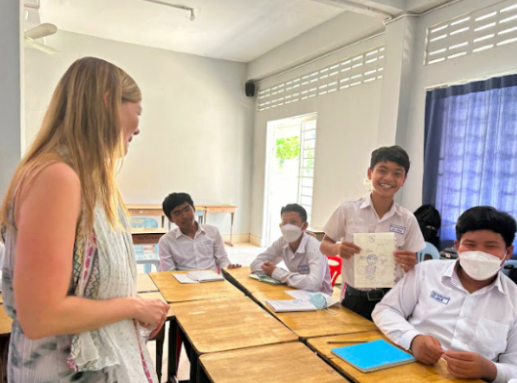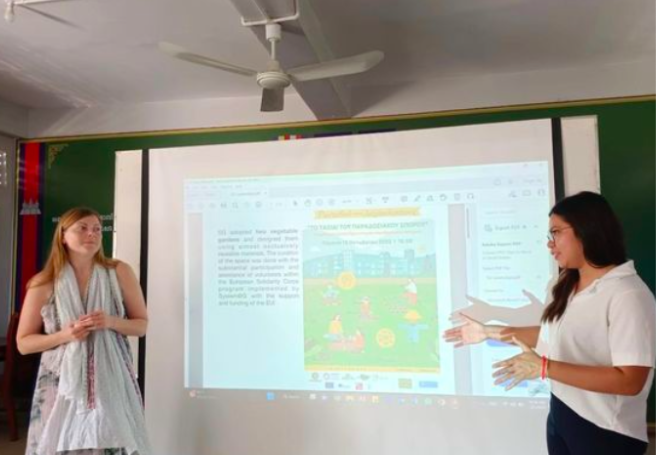Green Eco Labs
KYSD Cambodia began the (4)EVERGREEN project with a Training of Trainers for youth volunteers. They focused on environment protection and engaged the community by translating 101 eco tips into Khmer. The volunteers selected eco tips they were passionate about and converted them into videos.
KYSD Cambodia delivered an Eco lab in Siem Reap, Cambodia with PREAH ENKOSA SECONDARY SCHOOL on 1st March 2023. During the session, we displayed five videos of the eco tips, and had the students discuss the tips with their peers to explore more ideas. Also, as part of host job shadowing from Greece, we get to share about the gardening practice in Greece with the student. The students gained knowledge on the negative impact on the environment and they got to discuss with their peers the solution on how they could adopt positive behaviors in their daily activities to contribute to the environment.
🇵🇹 Geoclube – Portugal
Geoclube’s Eco Labs primarily involved raising awareness in local schools about the environmental challenges we face. We kicked off the sessions with an energizer and then gathered eco-tip ideas from the students. Our main focus was on the Sustainable Development Goals (SDGs), explaining their meaning and discussing how to achieve them on a local level. We started by addressing the specific issues in their community and then broadened the perspective to global scenarios, emphasizing the urgency of implementing the SDGs for long-term success.
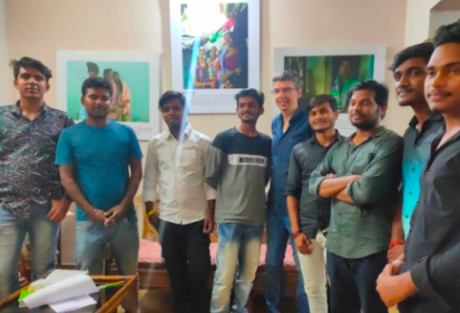
🇮🇳 OSVSWA – India
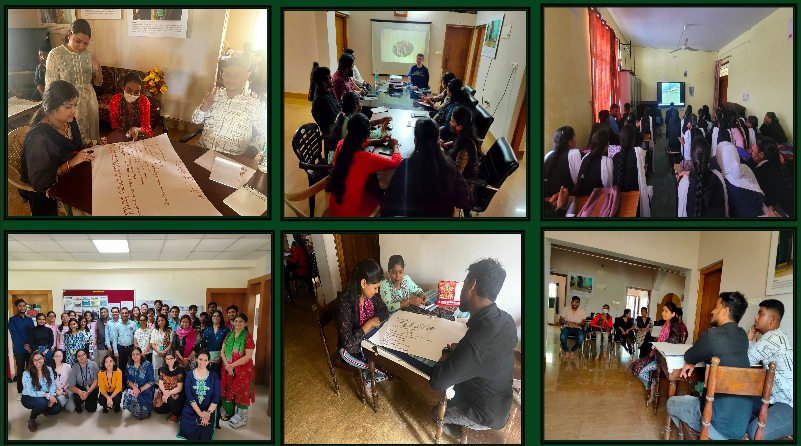
OSVSWA conducted various awareness meetings (in the form of Ecolab) in different geographically diversified location in the state to identify the urgent need and address climate change, biodiversity loss, and other environmental concerns in order to promote a cleaner and greener environment through youths, and by youths.
Physical Work Activities Carried out by Youths/ Volunteers:
Community awareness campaigns:
- Urban and rural youths spread awareness about the importance of sanitation through, posters (Eco Tips Poster provided by OSVSWA), and other means, emphasizing the need for proper waste disposal, safe water usage, and basic hygiene practices.
- Cleaning water bodies: Rural youths helped to clean up rivers, by removing waste materials and pollutants.
- Community toilet management: Urban and rural youths collaborated with local authorities to ensure public toilets are clean, functional and accessible, and conduct awareness drives to promote safe and hygienic toilet use
Eco-labs sessions agenda comprised below:
- Recycle: Learn what can be recycled in your area and make sure to properly sort and recycle your waste.
- Conserve energy : Turn off lights and electronics when you’re not using them, and use energy-efficient appliances.
- Use sustainable transportation: Walk, bike, or take public transportation , and choose carpooling
- Cleaning public areas: Urban and rural youths teamed up to clean public areas such as streets, parks,.
- Waste segregation: Urban and rural youths helped in the segregation of waste.
🇬🇷 System and G – Greece;
System and G implemented “Rendezvous in the Vegetable Gardens,” an innovative workshop promoting sustainable living and learning. Children from families served by Komotini Child and Family Support Center participated. The workshop aimed to raise environmental awareness and foster green daily habits for sustainable development. It included a fairytale about the environment, seed planting games, and bio product use. Through experiential activities, the workshop encouraged responsible consumption and waste management, promoting traditional and eco products. It proved to be a unique and effective way to engage young people in sustainability practices.
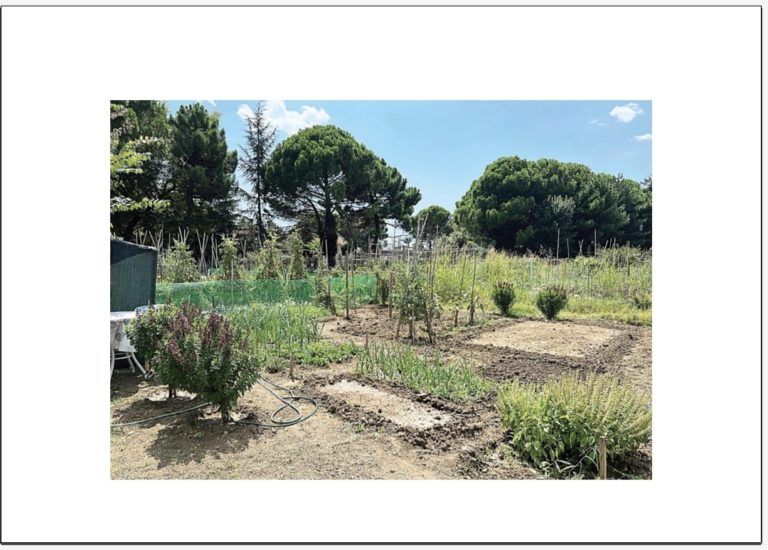
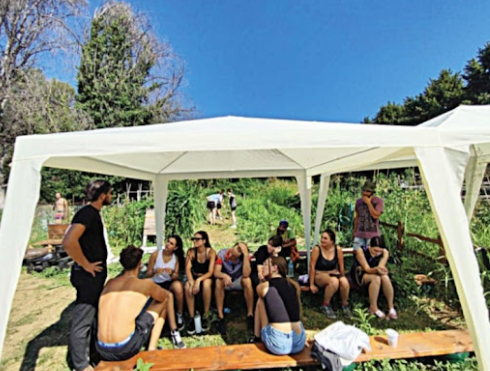
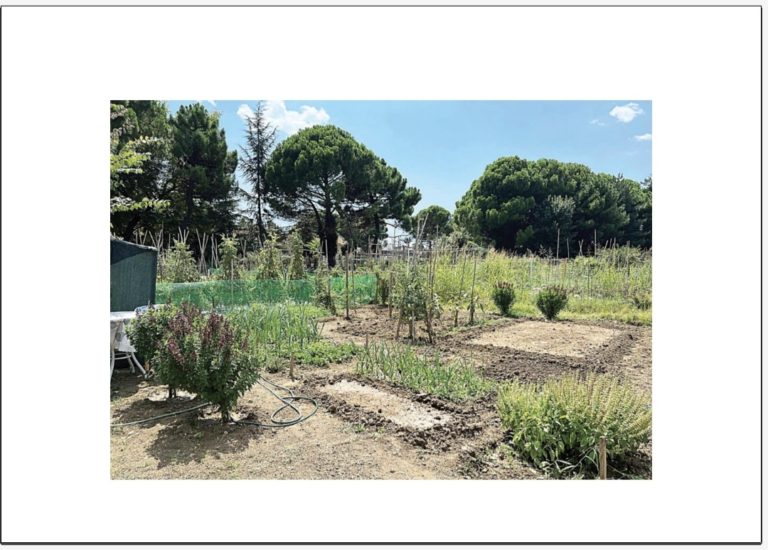
🇨🇾 PLANBE Plan it Be it – Cyprus
Plan Be’s (4)EVERGREEN project established local eco-labs on the Cities of Learning platform with valuable assistance from Job Shadower Tess. They organized clean-ups and workshops, encouraging environmental awareness and creativity among young participants. Four local labs were created and implemented as follows:
- In the first local lab at the Municipality of Lakatamia, a clean-up was organized along the Pedieos River and the pedestrian path. Young participants collected garbage, transforming it into flower pot installations through upcycling. This activity raised environmental awareness, promoted the reuse of recyclable materials, and fostered creative skills. The resulting sculpture now decorates the Municipality of Lakatamia, inspiring sustainable development messages.
- The second local lab featured a workshop on creating seed bombs. Young people learned how to make these compost and seed-filled balls, allowing them to grow flowers without extensive land preparation. The workshop served as a therapeutic activity, nurturing a connection with nature.
- The third local lab focused on composting education, where young participants built compost bins out of palettes in the village of Kannavia. They designed the palettes aesthetically, enhancing the village’s appearance.
- In the last local lab, a clean-up was held in the village of Kannavia, and participants used collected trash to create a mural. This initiative fostered environmental awareness, upcycling skills, and a sense of pride among the young people, empowering them to advocate for sustainable development.
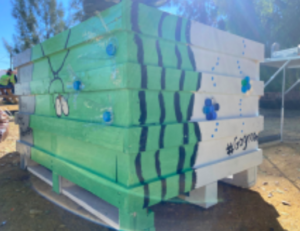
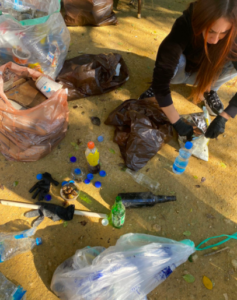
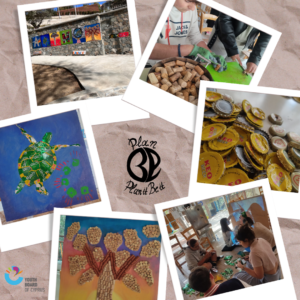
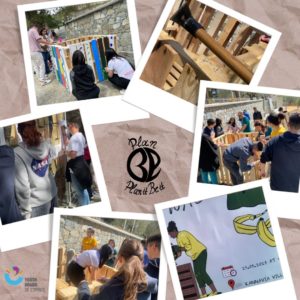
🇻🇳 CSDS –Vietnam
In cooperation with UNDP Vietnam and GREEN Club of ULIS, CSDS created a platform for young people to discuss and raise concerns about climate change in the local context; The first lab was also a chance to compile the national youth statement to demonstrate young people’s views and recommendations, which will contribute to the Global Youth Statement and be presented to the policymakers;
Besides that, CSDS organized 3 other labs about Fast Fashion, Global Warming and Say NO to plastic bags. The last 3 labs were for primary school, secondary school and high school kids with the aim to raise their awareness and engagement in small but powerful contributions towards sustainable development.
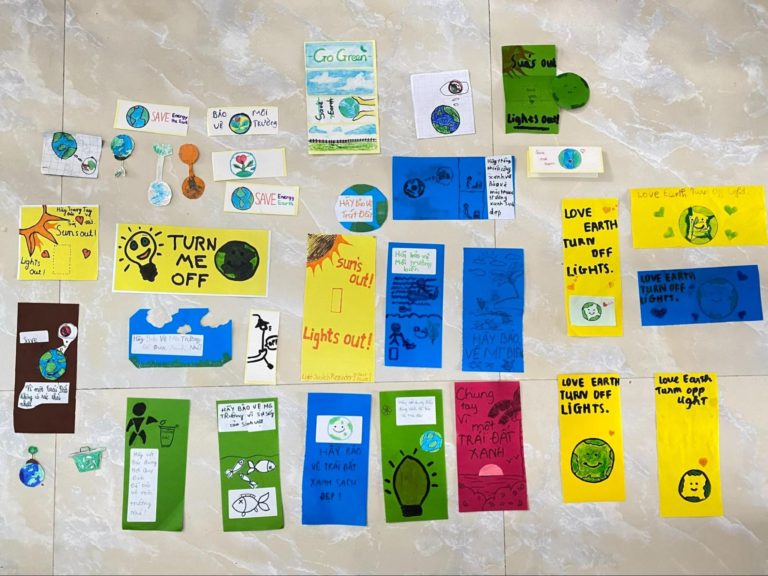
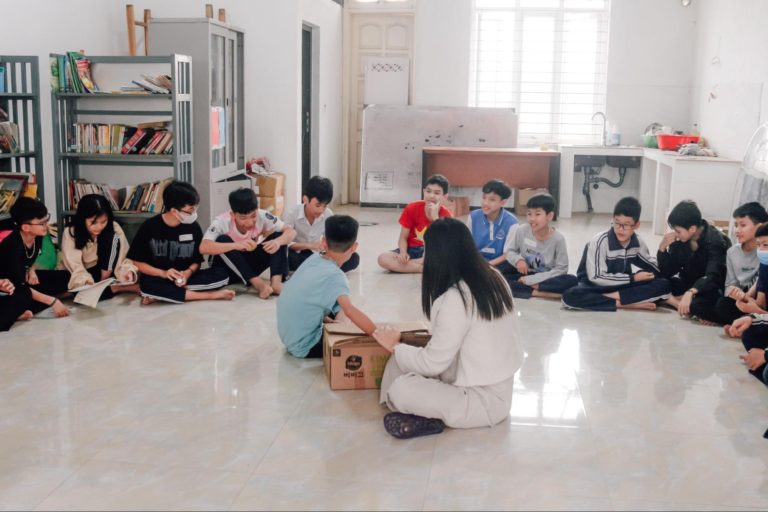
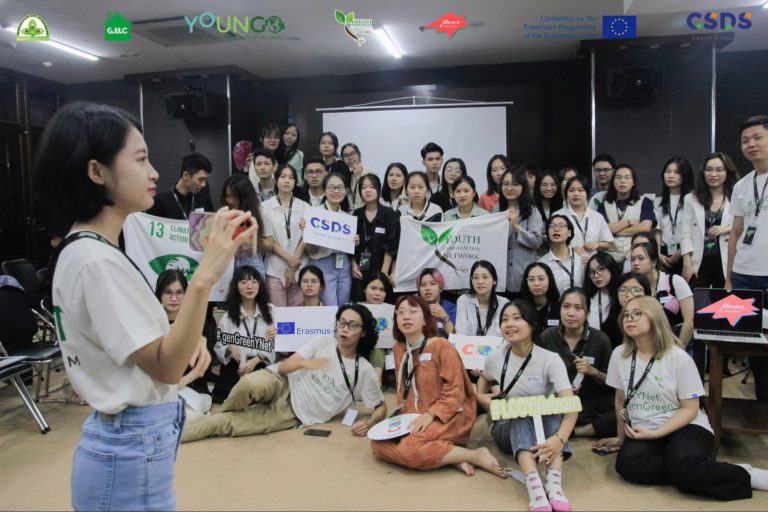
🇮🇹 InCo – Italy
For the (4)evergreen project, ecolabs activities were planned with one of our ESC volunteers who is passionate about ceramics. In fact, the concept was about working with ceramic while talking about the climate issue and sharing good practices that each participant adopts in his or her daily life. We planned 4 workshops, focusing on 4 different aspects related to the environmental issue.
1. Citizens, society and climate: our facilitator Ezgi explained to the participants how to model ceramics, meanwhile questions were proposed to facilitate dialogue on climate, focusing on the responsibilities we feel as citizens and the concrete actions that can be done both as individuals and as a society understood as a collection of individuals.
2. In this workshop we focused more on the institutional landscape through a quiz, particularly on the SDGs and the good practices that are being instituted around the world and the positive achievements of some countries in environmental protection.
3. In this workshop we talked a lot about how the smartphone is connected to climate issues. Both from a structural point of view (materials from which it is made, overuse, energy consumption it generates etc.), and from the point of view of the tool through which we receive information, thus the positive possibilities it brings, but also the negative aspects (eco-anxiety, fake news, minimization of the problem and bombing of negative information).
4. The content for change: how to communicate the climate crisis through ceramics. We focused on how art can shape our doubts, perplexity, anxiety or optimism.
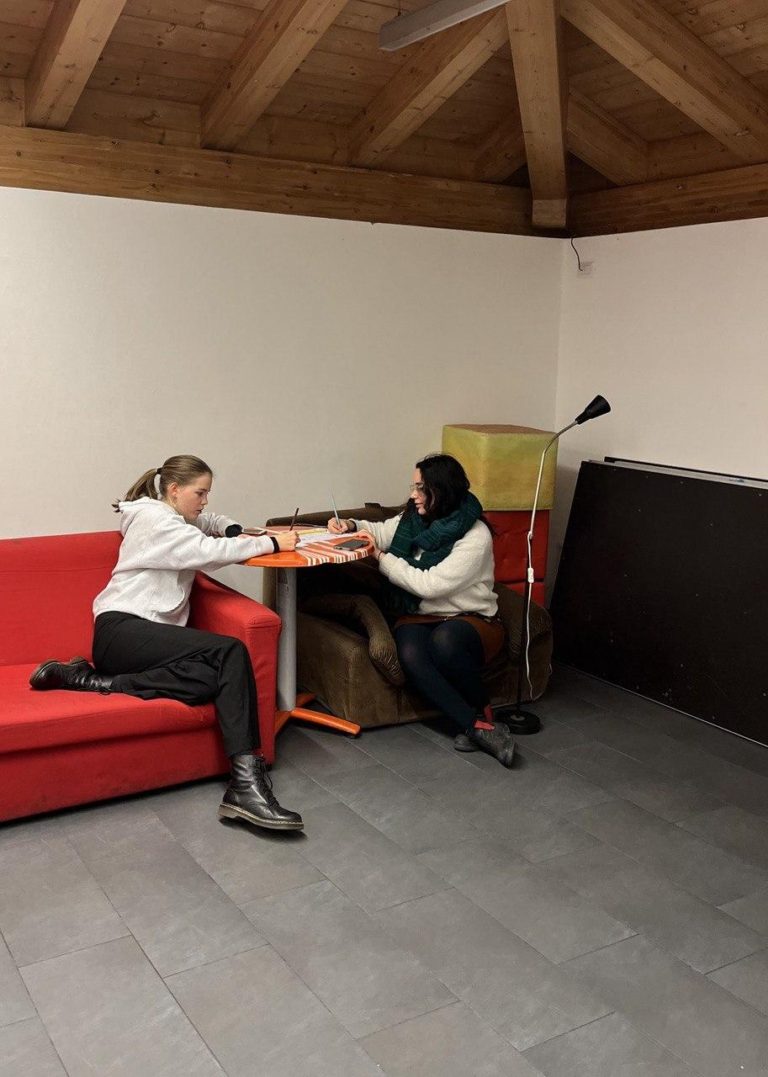
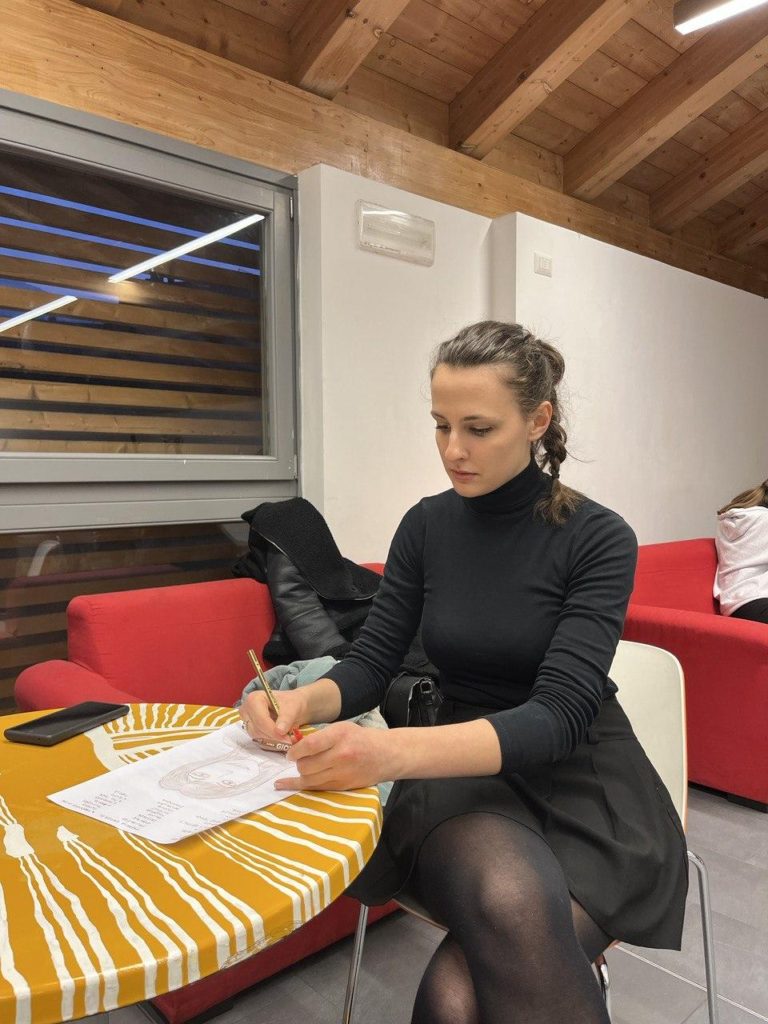
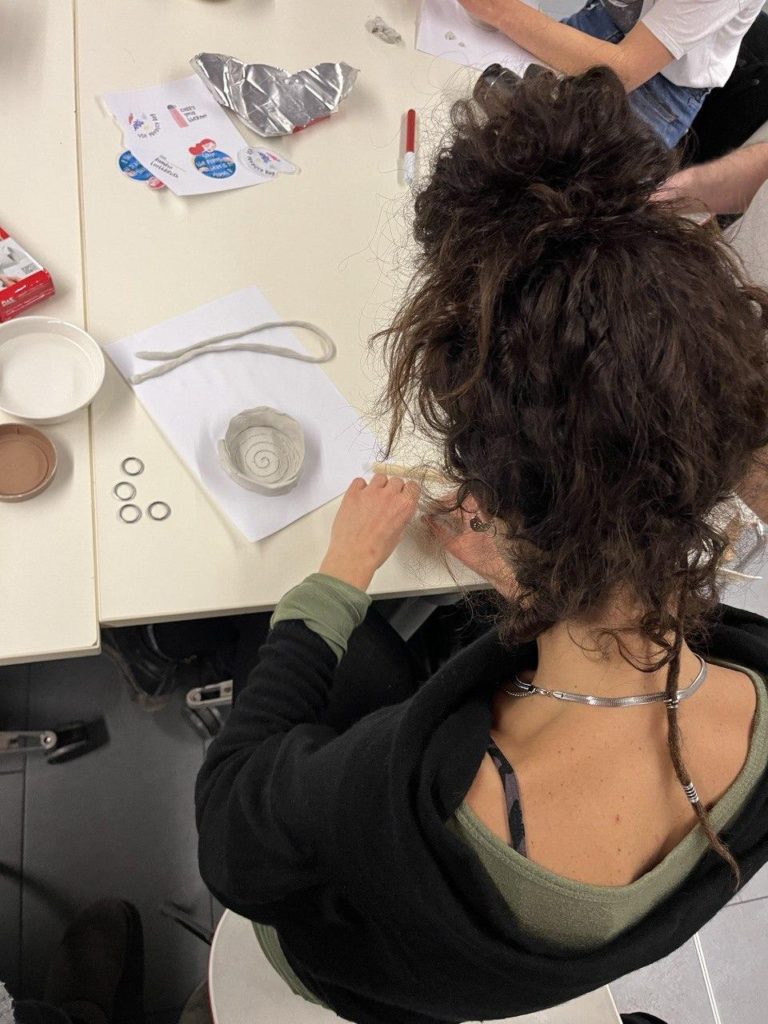
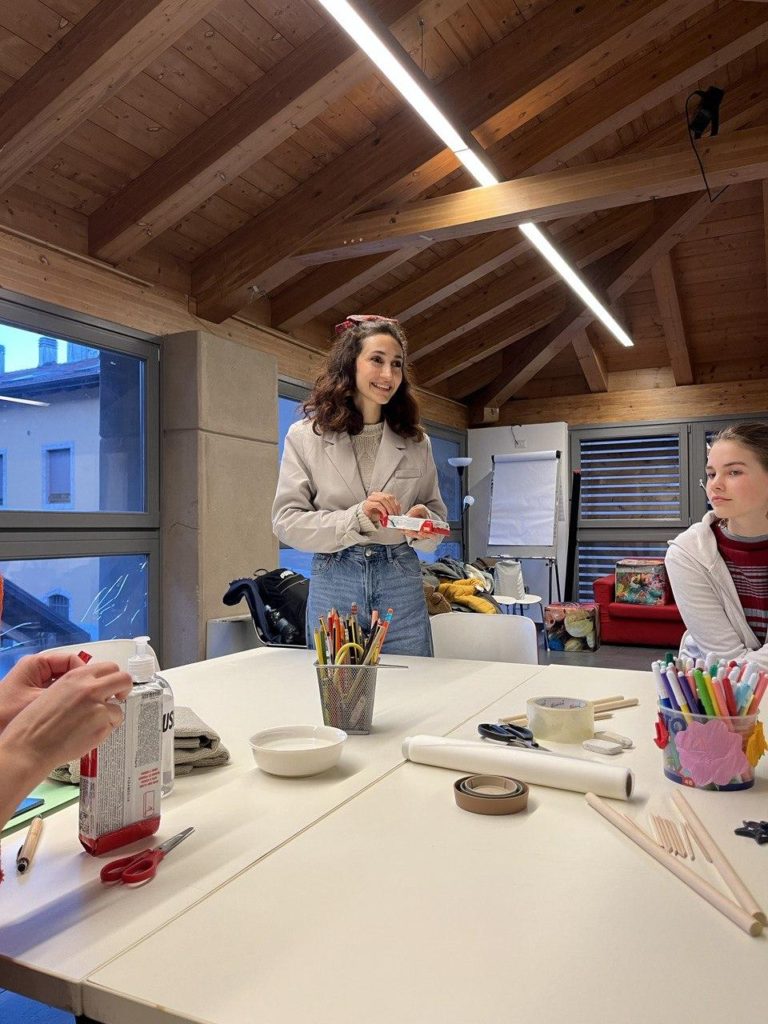
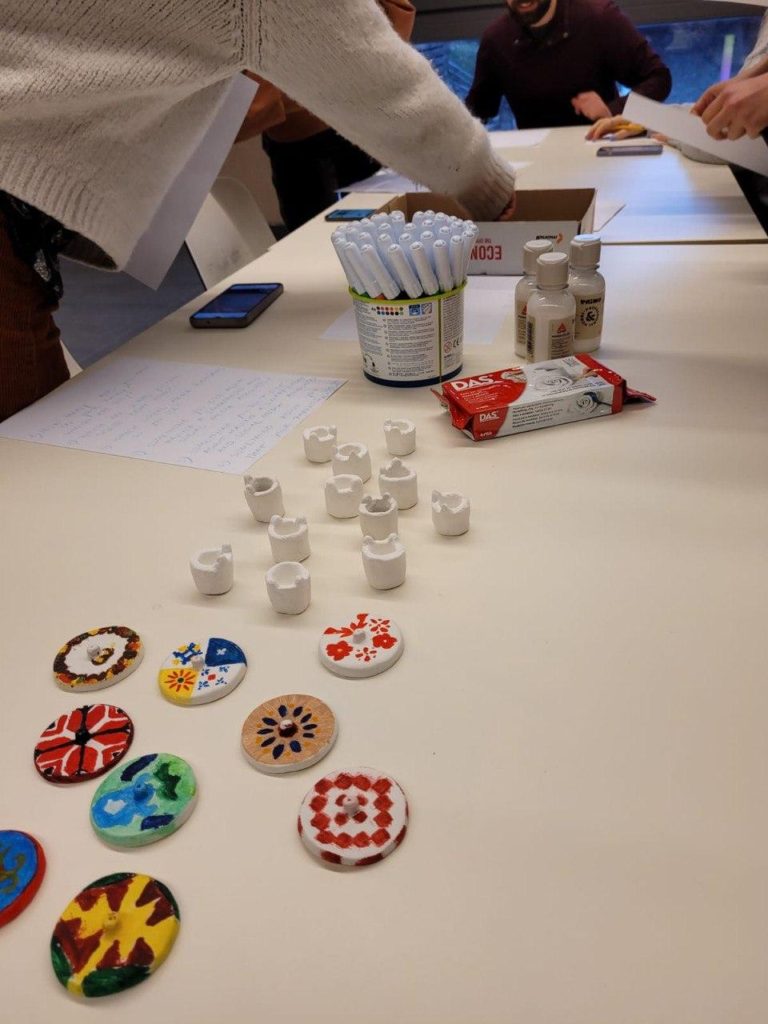
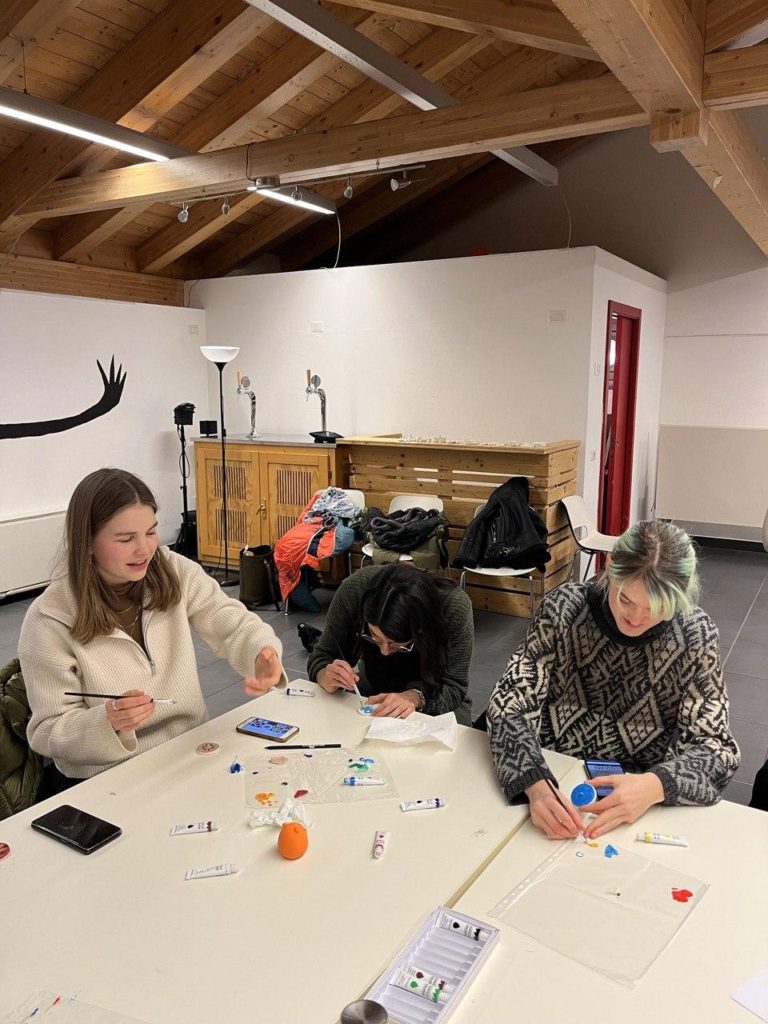
🇰🇪 ITF – Kenya
ITF – Kenya organized the (4)Evergreen training environment, bringing together youth from various backgrounds to learn, share, and grow. The training took place at The University of Nairobi, Lower Kabete Campus.
During the training, ITF – Kenya introduced the participants to the Sustainable Development Goals (SDGs), with a particular focus on those related to the environment. Additionally, two guest speakers shared their experiences in engaging in activities aligned with the project’s goals. As part of their initiative to promote environmental sustainability, ITF – Kenya distributed environmentally friendly, reusable water bottles and jute bags.

